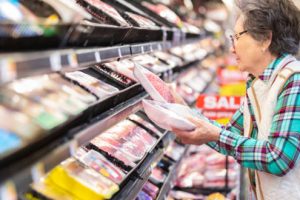The survey, of 1,706 people conducted by Leatherhead Food Research, found changes include: shopping less frequently but buying more per shop (56%), planning meals to shop for the week ahead (37%), supporting local shops more than in the past (36%), shopping for vulnerable people (29%), and buying more groceries online (28%).
When asked if they would maintain new habits when lockdown ends, 42% said they would continue supporting local shops, and 36% plan to continue with occasional ‘big shops’ instead of visiting stores several times a week.
Many respondents (62%) also report a change in cooking habits. More than a third (36%) say they have been cooking from scratch more often than before and 35% say they have been doing more baking. This trend was most pronounced in the 16-35 age group: 45% have used the lockdown as an opportunity to do more baking and 36% say they are experimenting with recipes and cooking techniques that they didn’t have time to try before. When lockdown ends, 42% of 16-35-year-olds say they plan to continue cooking at home more than they did before, compared to 26% of the general population.
The research found that attitudes to food hygiene have also changed for 78% of respondents. Most people (64%) say they are now more careful about washing hands and cleaning surfaces after handling and unpacking food from shops, 37% of respondents believe that everyone should now use hand sanitiser when entering a shop where food is sold, and 40% of people are more careful about washing unpackaged fruit and vegetables than they were before.
When lockdown ends, 34% of over 65s say they quickly want things to return to normal, versus 27% of the general population, and 20% of 16-35s. However, all age groups agree that what they have missed most during lockdown is socialising over a meal or drink.
Emma Gubisch, head of consumer science at Leatherhead, said: “The food and beverage sector is likely to experience a nuanced shift to a ‘new normal’. Much will depend on how the Covid-19 crisis unfolds from here. If there is a second spike in cases, we can expect a heightened awareness of hygiene to remain. But it will be interesting to see if the 16-35 age group can maintain its new-found love of cooking once children are back in school and more people return to their usual place of work. These are challenging and volatile times, but food and beverage brands that can pivot to help consumers live the life they want to will be well-placed to thrive whatever the future holds.”
 Talking Retail Grocery and product news for independent retailers
Talking Retail Grocery and product news for independent retailers






